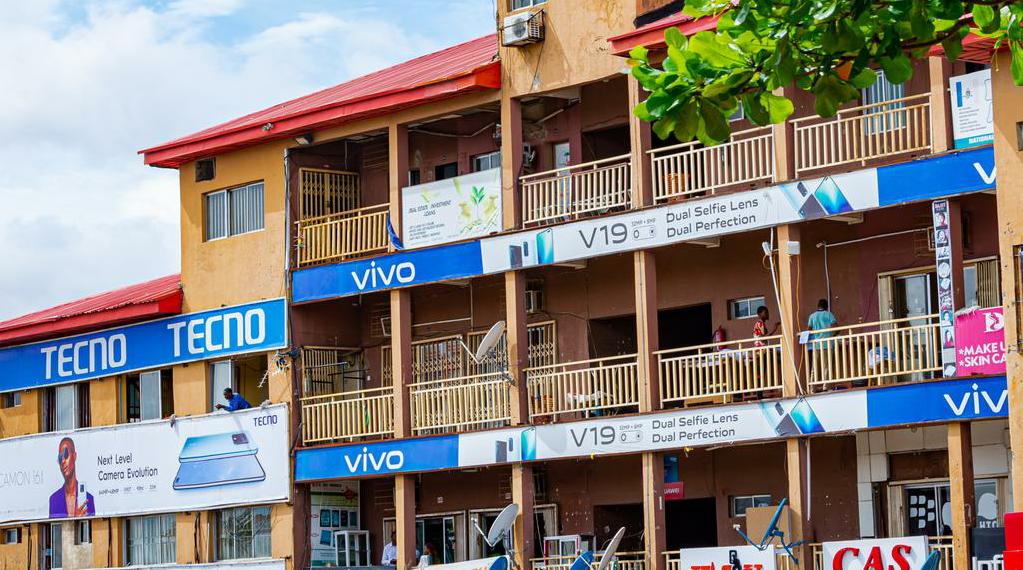Two soldiers beat up not exactly to a pulp but in the full glare of onlookers and bystanders, some terrified, others not quite, and then in the global glare of the social media.
Too much humiliation in a day, and within months, and signs of considerable danger for a regimented institution known for its discipline and indelible institutional memory especially with the attack in Okuama, Delta State where about sixteen military personnel lost their lives in the most brutal manner.
True to form, the Nigeria army had shut down Banex plaza, a behemoth commercial hub that sits like a boulder in the heart of the Federal Capital Territory, where the assault occurred, reopening it after more than a week. If the army’s loss of face in the unfortunate situation is well imponderable, the losses of those who do business there have simply been incalculable.
A pressing question Is why? Why should a relatively trivial commercial transaction descend into a fracas that has now generated more losses than imagined? Are Nigerians now shred of all dignity so as to easily eschew the simplest dictates of civility?
Assuming terrorists had fallen upon the plaza on that day, the Nigerian soldiers would have been expected to be the first responders. Given the onerous number of times they have to look death in the eye while carrying out their constitutional duties, while did Banex plaza become a life-size bust of danger in broad daylight even if the soldiers were out there purely on a frolic of their own?
It should worry the few sensible Nigerians left that may of their fellow citizens have lost all regards for constituted authority.
The law has alwayss haboured an inborn aversion to being taken into hands order than hands it recognizes. This is because most times, human hands are soiled with blood or, like Pilate’s, are the hands of the betrayer, metaphorically washed of any responsibility or accountability. This hands-on aversion to being taking into just any hands also explains why the evolution of the law frowns at King Leopold’s propensity to chop off hands for poor productivity at rubber plantations in Belgium Congo during colonial times, or any religion that punishes thieves by chopping off their hands.
It Is a good thing that the Nigerian Army has recalled its men from the Plaza. They are not security men there and Nigeria is too pressed for security personnel presently to have extra uniformed hands to push to gateposts as gatekeepers of a commercial plaza. Now that the resumption of commercial activities at the plaza has been allowed, it will surely not militate against the identification of the culprits who must be made to account for their crimes in laying leprous fingers on men whom the law considers defenders of Nigeria’s territorial sovereignty.
What transpired at Banex was yet another episode in the open-air assault of the law which some Nigerians favour more than the strained dignity of judicial proceedings. This kind of assault often comes unannounced and is capable of springing up anywhere. It is a habit born presumably of the heady days of military regimes, when the army gave an especially short shrift to the law in Nigeria. It was ironic then to see men in uniform at the receiving end of this brand of cruel and crude justice.
However, throwing in hands and stones or contributing fuel and match sticks to such gruesome expeditions is terrible advertisement for a country that aspires to become a model democracy.
Nigerians must discipline themselves to refrain from taking the law into their hands. No one deserves to be punished except in accordance with law. Not the vagrant accused of stealing at the market or even suspected one-chance robbers commonplace in Abuja nowadays.
Despite their internalized protestations at the ponderous pace at which the wheels of justice grind in their country, mob justice is precisely the cruelest version of injustice, for in it everything the law abhors and abstains from is prominently displayed.
In a democracy such as Nigeria’s, acting in accordance with the law is a strength not a weakness. If Nigeria ever hopes to heal from the deep wounds of its military past, Nigerians must see obedience to laws and respect for constituted authorities as key.
There is no love lost between Nigerians and the army as an institution. A historic animosity long preceded the military coups which truncated Nigeria’s democracy in the 60s through the 80s. This animosity is rooted in the colonial era, when force was used to by the colonialists to achieve their aims. Though the Nigerian Army was not what it is now, residual hostility for those who bear arms in the name of the law became a part of many Nigerian lives.
Many Nigerians blame the army for frustrating democracy in the country for so long and allowing corruption to fester. The Odi, Zaki Biam and Lekki Toll Gate massacres did more to damage its reputation by portraying it as a high-handed institution lacking in professionalism.
This memory carried over from the days when the institution was used to defeat the aims of democracy has done enough to shroud the heroic job Nigerian soldiers have done to keep the country from falling into the hands of terrorists.
To strengthen the country’s security and fortify its democracy, Nigerians, and the personnel of the Nigeria Army must close ranks and work together instead of working at cross-purposes. This is necessary in the grander scheme of things, for any divisions would surely be pounced upon by Nigeria’s many enemies.
Ike Willie-Nwobu can be reached via Ikewilly9@gmail.com



